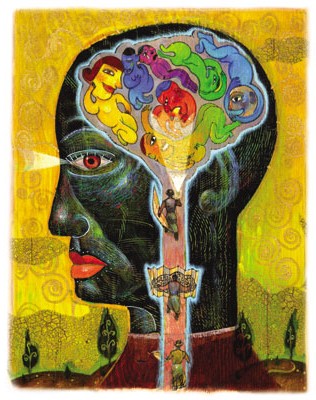The Feeling Brain: What Are Emotions?
 By Georgianna Donadio, MSc, DC, PhD – Have you ever wondered where emotions come from? What are emotions, and what purpose do they serve?
By Georgianna Donadio, MSc, DC, PhD – Have you ever wondered where emotions come from? What are emotions, and what purpose do they serve?
The Thinking Brain
Most of us perceive our brain as being for “thinking” or intellectual functions. We often think of ourselves, our personality as what is going on “from the neck up”. In fact, there are several parts to our brain which contribute to who we are and how we form our personality – not just our cortex. The cortex is what we refer to as our “smart brain”. Most of us know individuals who are brilliant academically or intellectually. Yet – they are emotionally dysfunctional almost in the extreme. We often presume erroneously that our thinking brain should be “smart” enough to exercise dominion over our emotions.
What Are Emotions?
However, the missing piece of information here is that our emotions actually are a survival adaptation mechanism. Each of us develops this mechanism as we process our early environment and social conditioning. Some of us learn to be assertive or aggressive in our environments to adapt,. Some of us may learn to become passive or try to become invisible to stay safe and secure. Nothing is more powerful in the human being than its drive to survive. Hence, our emotions win the day in the battle between thinking and feeling. It is helpful of us to understand that our emotions represent how we learned to adapt in our surroundings and environment, especially during the first 0-5 years of our development. Our familial “input” taught us, as did Pavlov with his dogs, how to respond to the stimuli we received as infants and toddlers. 
Interpersonal Emotional Issues
There exists a possibility that interpersonal issues which frustrate us may come not from “being difficult” or “bad intent.” Rather, they arise from our drive to survive and our interpretation of the stimulation and environment we were conditioned by. Knowing this, we can begin to be “kinder and gentler” towards ourselves and others. In summary, our emotions are the way we learn to live and survive in our world. We cannot “think them” into changing. But we can step back and appreciate the service and challenge they offer us in our daily lives. We can also explore techniques that allow us to have greater control over our emotions. You may also enjoy this article on How to Nourish A Healthy Immune System! Explore our Whole Health Training Programs.
